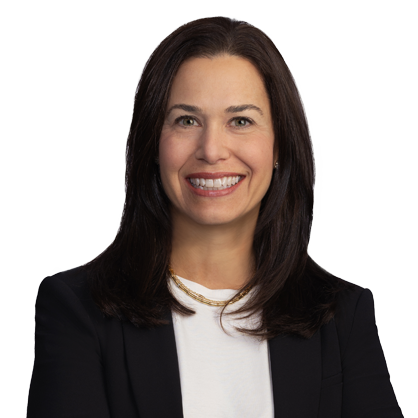Insights
Thought Leadership
IRS Issues Final Carried Interest Regulations
On January 7, the IRS released final regulations (the Final Regulations) regarding the taxation of carried interests under Section 1061 of the Internal Revenue Code (the Code). The Final Regulations retain the basic structure of proposed regulations that the IRS released on July 31, 2020 (the Proposed Regulations), but with certain helpful revisions.
Background
Investment partnerships such as hedge funds and private equity funds typically compensate their fund managers by granting a right to future partnership profits. This partnership interest is commonly known as a "carried interest" or a "promote" and is usually not taxable to the fund manager upon receipt. Gain recognized by the fund from its investments and allocated to the fund manager is generally taxed at favorable long?term capital gain rates.
In 2017, Congress enacted Section 1061 of the Code as part of the Tax Cuts and Jobs Act. Section 1061 generally extends the holding period required to qualify for long-term capital gain treatment from one year to three years with respect to gains related to an "applicable partnership interest" (API). Section 1061(c)(1) defines an API as any interest in a partnership which is held by a taxpayer in connection with the performance of services in any applicable trade or business (ATB), defined generally as (A) raising or returning capital, and (B) investing in or developing specified assets. Section 1061(c)(3) defines "specified assets" as securities, commodities, real estate held for rental or investment, cash or cash equivalents, options or derivative contracts with respect to any of the foregoing, and interests in partnerships to the extent of the partnerships' proportionate interests in any of the foregoing. Most investment partnerships will fall within this definition, and therefore a fund manager that receives a carried interest from an investment partnership will be subject to the rules of Section 1061.
The Final Regulations
The Final Regulations address a wide range of issues related to Section 1061 that are necessarily beyond the scope of this client alert. That said, we found the following topics to be noteworthy:
1. Types of Gains. Section 1061(a) extends the holding period for long-term capital gains "with respect to" one or more APIs held during the taxable year. The Final Regulations confirmed that "API Gains" include not only long-term capital gains generated upon disposition of an API but also any long-term capital gain allocated to the holder by the fund that issued the API. The Final Regulations also adopt the interpretation set forth in the Proposed Regulations that Section 1061 only applies to capital gains that are treated as long-term capital gains under Sections 1223(3)-(4) of the Code. As a result, capital gains that are afforded long-term capital gain treatment under other Code provisions, such as Sections 1231 and 1256, are excluded from Section 1061.
2. Carry Waivers. In the preamble to the Proposed Regulations, the IRS noted that taxpayers might seek to circumvent Section 1061 by waiving their rights to API Gains in favor of similar types of income that are not subject to Section 1061. For example, a partnership agreement might allow a general partner to waive its right to an allocation of API Gain and substitute gain generated under Section 1231 or a qualified dividend for such gain. In the Proposed Regulations, the IRS did not prohibit carry waivers under Section 1061 but warned that it might challenge carry waiver arrangements under other areas of the Code or general tax doctrines. The IRS chose not to address carry waivers at all in the Final Regulations. This should be viewed as a positive development for investment funds, but the lack of guidance also makes it difficult for funds to determine whether to implement a carry waiver mechanism into their partnership agreements. This issue may have a greater impact on hedge funds, which generally hold assets for shorter periods of time, than on private equity funds.
3. Exceptions to Definition of API. Section 1061(c) lists four exceptions to the definition of an API. First, an API does not include an interest held by a person who is employed by another entity that is conducting a trade or business (other than an ATB) and provides services only to such other entity. Second, an API does not include an interest in a partnership directly or indirectly held by a corporation (the Corporate Exception). Third, an API does not include any capital interest in the partnership which provides a return commensurate with the amount of capital invested for such interest or the amount recognized as income on receipt of such interest (the Capital Interest Exception). Fourth, Section 1061 will not apply to income or gain attributable to any asset not held for portfolio investment on behalf of third-party investors. The Proposed Regulations introduced a fifth exception for bona fide unrelated taxpayers who purchase an API for fair market value.
The Final Regulations adopt the fifth exception and provide further guidance and examples. The Final Regulations broaden the applicability of the Capital Interest Exception, which under the Proposed Regulations required that the partnership maintain capital accounts in accordance with Section 704(b) of the Code, by making it possible for partnerships that use targeted allocations or maintain capital accounts using GAAP to qualify. In addition, the Final Regulations loosen restrictions in the Proposed Regulations that applied to capital interests acquired with loan proceeds. Lastly, the Final Regulations confirm that partnership interests held by S corporations or passive foreign investment companies with qualified electing fund elections do not qualify under the Corporate Exception.
4. Lookthrough Rule. Section 1061(a) provides that if one or more APIs are held by a taxpayer at any time during the taxable year, the excess (if any) of (1) the taxpayer's net long-term capital gain with respect to such interests, over (2) the taxpayer's net long-term capital gain with respect to such interests computed by substituting a three?year holding period for a one?year holding period must be treated as short-term capital gain. However, Section 1061 does not provide what the relevant holding period is with respect to a sale of an API with assets of different holding periods. The Proposed Regulations introduced a "lookthrough" rule that required the taxpayer to measure the partnership's holding period of each of its assets. The Final Regulations replaced this rule with a more straightforward rule that generally permits a taxpayer that sells an API to qualify for long-term capital gain treatment if the taxpayer held the API for more than three years, irrespective of how long the API held its underlying assets. However, the Final Regulations do introduce an anti-avoidance rule that requires the taxpayer to "lookthrough" to the partnership's holding period for its assets under certain circumstances. The preamble to the Final Regulations states that without this rule, fund managers might attempt to avoid the rules of Section 1061 by establishing partnerships and leaving them inactive for three years before attracting investments from limited partners. In addition, the Final Regulations provide that the lookthrough rule also applies to any transaction that occurs with the principal purpose of avoiding gain recharacterization under Section 1061(a).
5. Transfers to Related Persons. Section 1061(d) recharacterizes certain long-term capital gain as short-term capital gain when a taxpayer transfers an API to a related person. However, Section 1061(d) does not define "transfer" or otherwise limit its application to taxable transfers. Thus, the statute suggests that tax-free transfers of an API (e.g., a gift, bequest or a transfer to a grantor trust) are also subject to Section 1061(d), and the Proposed Regulations furthered this view by stating that a transfer does include transfers that are otherwise tax-free. This created a substantial amount of uncertainty, as it became unclear whether making a tax-free transfer of an API could somehow trigger unrealized built-in gain that is recharacterized as short-term gain. The Final Regulations resolved this issue favorably by stating that Section 1061(d) does not apply to nontaxable transfers.
Impact of the Biden Presidency
The Final Regulations generally apply to taxable years beginning on or after January 19, 2021. It remains unclear how President Biden plans to address carried interest taxation. However, the tax plan that President Biden released prior to the election did propose to increase the tax rate applicable to long-term capital gains and qualified dividends from 20 percent to 39.6 percent. Any change to the long-term capital gain rate would have a substantial impact on Section 1061 and carried interest planning in general. Day Pitney will stay abreast of these developments.





